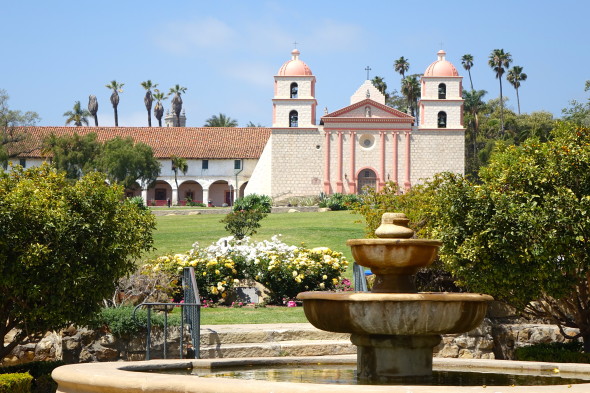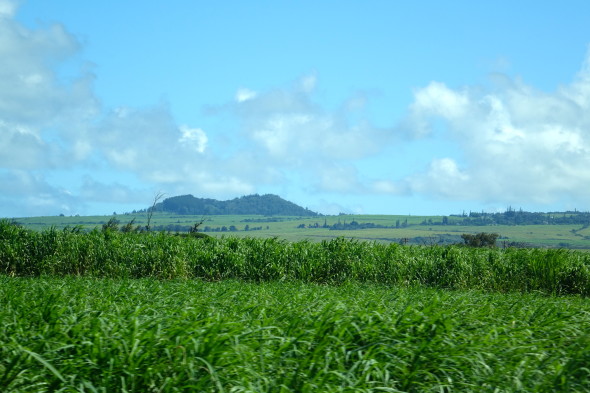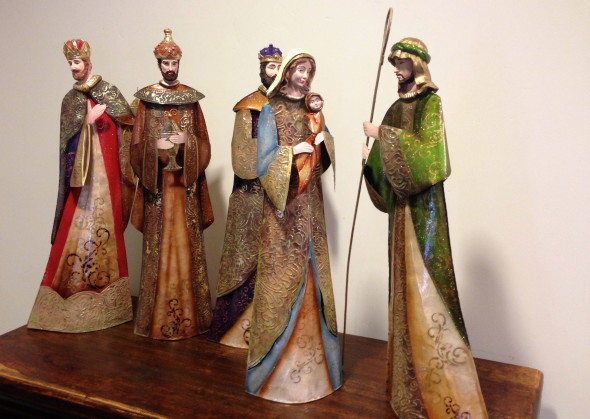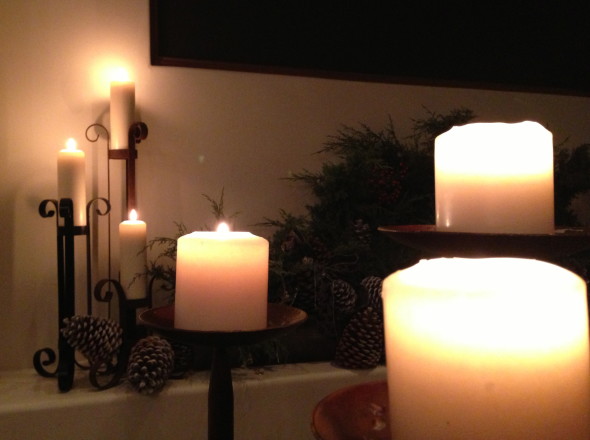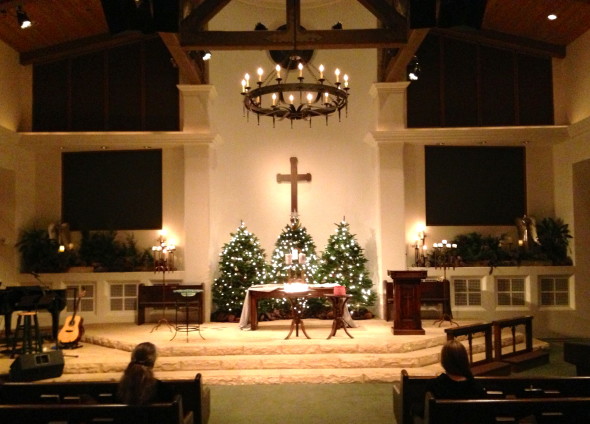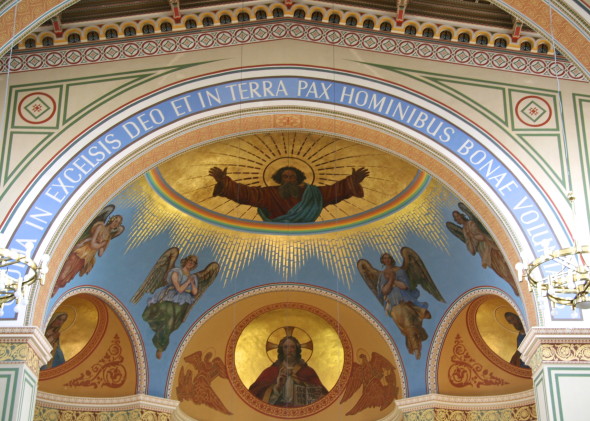Ezekiel 36:24-28, NRSV
I will take you from the nations, and gather you from all the countries, and bring you into your own land. I will sprinkle clean water upon you, and you shall be clean from all your uncleannesses, and from all your idols I will cleanse you. A new heart I will give you, and a new spirit I will put within you; and I will remove from your body the heart of stone and give you a heart of flesh. I will put my spirit within you, and make you follow my statutes and be careful to observe my ordinances. Then you shall live in the land that I gave to your ancestors; and you shall be my people, and I will be your God.
I kind of look for hearts. Yeah, it’s a weird little thing of mine. I love them. And on our recent vacation, I was watching some birds as they took baths in a small birdbath nearby and right next to me was this vine. And lo and behold, if I didn’t spy a small heart-shaped hole, left there by some local insect. Can you find it in the picture?
When I add a heart-shaped rock to my collection, or use a stick to make a heart in the sand, or cut a heart out of colored paper to give to one of my grandgirls, I think of this verse.
A new heart. And not a heavenly heart, either. A heart of flesh. A soft heart, a real heart, a love-filled heart. That’s the business God is in, friends. Making us as beautifully human as possible. TRULY human. Looking more and more like Jesus.
Thank you for this promise, O Lord. For the beauty of your transforming work in us and through us. Remind us that our hearts are designed to be soft and tender, not hard and impregnable. As we move closer to that stable, help us to open our hearts, to take a risk here or there, a risk on love.

